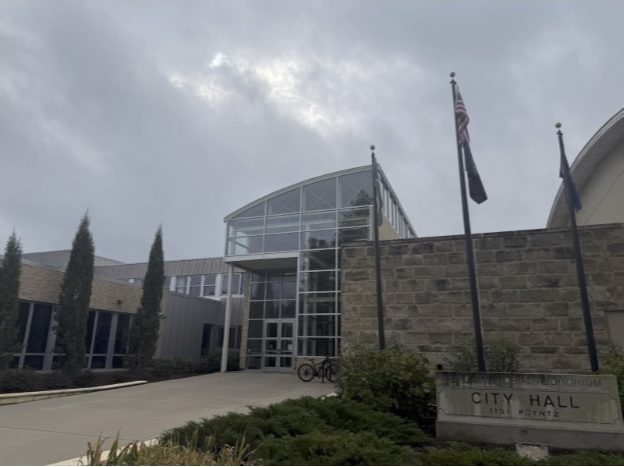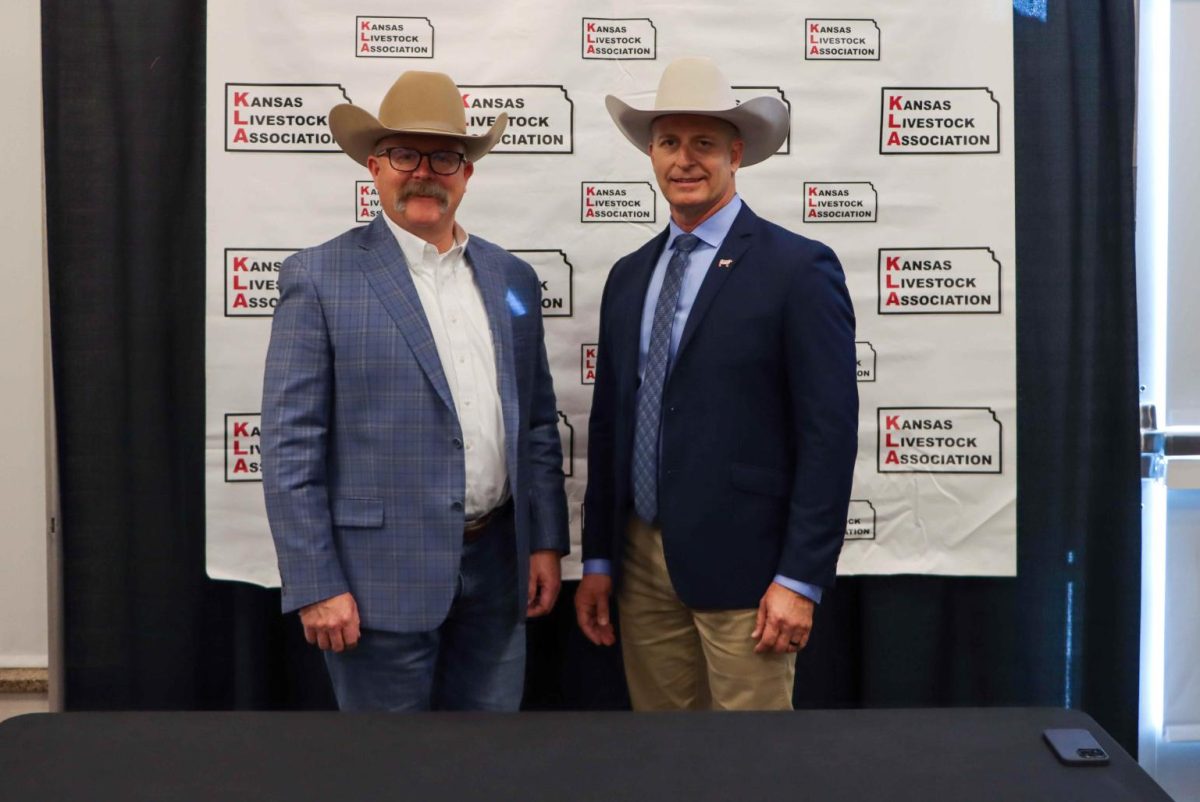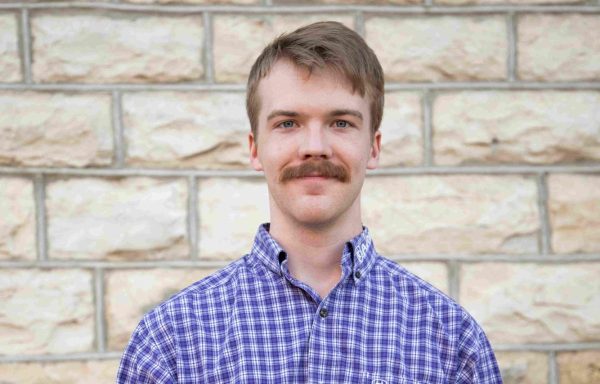For the first time in its 130 years, the Kansas Livestock Association held its yearly convention in Manhattan. Events were held Nov. 20-22 in Hilton Garden Inn and Manhattan Discovery Center.
KLA President Troy Sander, a Victoria, Kansas native, began his year-long term on the final day of the conference.
A member of KLA for over 25 years, Sander is also a member of the association’s board of directors and executive committee. He was chairman of the KLA Cattle Feeders Council in 2020 and served on the KLA Policy & Resolutions Committee. Sander graduated from Fort Hays State in 1991.
Ty Breeden, a 2003 Kansas State graduate and Quinter, Kansas native, was selected by KLA members as the president-elect after Sander.
Sander said his main message to KLA members is to “be a part of the solution, not the problem.”
“That’s my message,” he said. “Everybody can stand around and tell you what the problems are, but it takes a unique individual, with some guts, that will try to be part of the solution. And I really think that’s where it’s at. The other thing is get involved … you know, what I found out over the last several years, making trips to Washington, DC, making trips to Topeka, these elected officials, state, local, at the national level, they do want to hear from people.”
For college students eager to get involved and work in Kansas livestock, Sanders said his advice is to learn from the ground up.
“I had to bust a lot of frozen water tanks before I could ever get to the position where I’m at today,” he said. “There are so many people out there that are more than willing in these feed yards and these ranches, dairies across Kansas, that would love to bring aggressive, hard working young people in and teach them the ropes and show them how things are done. Work through Kansas Livestock Association to set those meetings up. I’ll guarantee you there are folks within [KLA] that would love nothing more than to help place people in feed yards, dairies, ranches, farming operations. And so my biggest advice to them is get out there and learn the trade.”
Sander said the change in location for the convention from its typical Wichita venue allowed for a very unique experience.
“When we were at the Discovery Center last night, and the K-State band came in and played, if that didn’t get your pulse going, then you need to make sure that you’re not dead, because that was great,” Sanders said. “Willie the Wildcat was there, and it feels so good to be here in the home of a land grant university that does so much for our industry.”
Regarding policies, Sander acknowledged potential privacy and monetary concerns relating to electronically tracking cattle, but said it is something they should look closer at and learn more about. He said he had personal experience where its use was beneficial.
“We need to learn about how traceability and electronic identification of cattle adds value to our product, and if it does add value I think it’s something we need to look at,” he said. “Personally, in our organization, we have every 100,000 head of animals electronically [identified], and it was the best decision I ever made. I did it three years ago, and I love it. And so I found a way to add value to our product, and that investment has paid me back three to four times. I think traceability is a big one for us.”
On Nov. 20, a total of $38,500 in scholarships was awarded to 34 students for the 2024-25 school year during the convention, presented by the Kansas Livestock Foundation and its partners. Twenty-five of those students were from K-State, receiving a total of $27,000.
Eight members of Collegiate Cattlewomen and two from Collegiate Cattlemen served as KLA interns at the convention.
Calley Stubs, a K-State junior in animal science and industry, said the event was a great opportunity to make connections, and that holding it in Manhattan was meaningful for many attendees.
“People come back because they went to college here, and it brings back good memories, but they’re also here for the convention, so it’s a good excuse to come back to their college roots,” Stubbs said.
Caity Cline, a K-State senior in hospitality management, said she attended the convention in the past and jumped at the chance to apply as an intern.
“I went to the convention last year as a Collegiate Cattlewoman, and that’s usually in Wichita.” Cline said. “This year they said it was in Manhattan, and that they were opening intern positions. And so as an officer for Cattlewomen’s, we kind of got dibs on the application. So a lot of us applied. Few of us got selected.”
Cline said a benefit of holding the convention in Manhattan is the opportunity to increase student attendance.
“K-State’s already really big with Kansas livestock, just since we’re the number one ag school,” Cline said. “I know no other colleges attend, especially their students, and they’re trying to raise the student ratio. And so I think being in a college town now is really great for that, because I think all our clubs brought at least 15 people each. There’s at least 30 students going each day.”
Cline noticed a much higher attendance this year, and said almost 700 people attended the dinner on Nov. 20.
Nissa Olsen, a K-State junior in animal science and industry, said she gained valuable experience from attending the convention.
“It’s the connections that you gain from this,” she said. “But also, enjoyed sitting in on committee meetings and hearing more in-depth personal issues that people have within the beef industry and coming together as a whole about how to address them through committee meetings. And everyone has their different opinion because they’re from different parts of the state, and I really like that as a college student, because I can apply some of the classes I’ve learned to those issues. Calley and I, … we talked through the entire meeting because we were discussing the issue and our opinions on it. So it broadened my perspective and made me think more about what I want my future career to look like.























































































































